By Male Solomon Grace, Communications Officer (GCIC Uganda)
At 10 years old, ‘Sarah’ should have been learning multiplication and writing stories. Instead, her school has become a place of fear where taunts, harsh punishment, and whispered threats from older pupils make her dread each morning. Her story isn’t isolated. Across Uganda, thousands of children like Sarah experience violence that robs them of safety, confidence, and the joy of learning.
According to findings from the USAID/Uganda Literacy Achievement and Retention Activity (2015–2018), an alarming 90 to 95 percent of pupils in lower primary classes experience bullying each school term. Even more troubling, 87 to 92 per cent had been subjected to corporal punishment, and nearly half of all pupils, both boys and girls, faced sexual harassment or abuse before completing Primary Five.
Uganda has long recognised education as a human right, evidently stipulated in the Education Act (2008), where the government commits to providing free, quality, and safe learning opportunities for every child. Policies such as the Gender in Education Policy (2016) and the National Strategy on Violence Against Children in Schools (VACS) go even further, mandating schools to create spaces free from discrimination, bullying, and abuse.
The latest Uganda Police Force Annual Crime Report (2004) as well reveals that gender-based violence (GBV) remains a serious national challenge despite slight declines in reported cases. The country recorded 14,073 domestic violence casesand14,425 sex-related offences, including 12,317 defilement cases involving minors, most of them girls. Disturbingly, both schools and homes have become unsafe spaces, with nearly 300 teachers, alongside some parents and guardians, implicated in child abuse. This highlights the urgent need for stronger institutional accountability, effective child safeguarding in schools, and community-driven efforts to end violence against women and children across Uganda.
But we need to remain mindful that behind all the numbers documented are children whose dreams shrink under fear, a clear reminder that learning cannot flourish where safety is absent. Recognising this, the Ministry of Education and Sports (MoES), supported by USAID and the Uganda National Institute of Teacher Education (UNITE), developed a groundbreaking Diploma in the Prevention of School-Related Gender-Based Violence (2024). The goal is to prepare a new generation of educators who not only teach but also protect and understand the gender dynamics in their classrooms and are equipped to respond to signs of violence and inequality.
This course will help teachers learn to design lessons that empower both girls and boys, to use language that uplifts instead of humiliates, and to create classrooms where respect replaces fear. Today, the Ministry of Education and Sports, through the Gender Mainstreaming Unit in partnership with UNESCO, has also held a five-day national Training of Trainers (13th to 17th October, 2025) on the prevention of school-related gender-based violence at Paradise Hotel in Jinja. The training has brought together educators, policymakers, and development partners to explore real-world cases, examine risk factors, and co-create strategies for prevention of GBV at every school level.
In the sessions, teachers have shared their own experiences of witnessing or confronting violence, and many admit that, in the past, corporal punishment or gender bias had been “normal” in their classrooms, not out of cruelty, but because “that’s how we were taught.” By the end of day one, something profound had shifted among the participants: the conviction that schools can be sanctuaries of safety and dignity and that teachers are the first line of defence in making this a reality.
According to Ms Rosette Nanyanzi, the Gender Technical Advisor at the Ministry of Education and Sports, preventing violence in schools isn’t only about rules and punishments, but it’s about reshaping mindsets. Harmful gender norms, rigid expectations of boys and girls, and community tolerance for violence continue to feed the problem. That’s why Uganda’s approach now looks beyond the classroom, involving parents, local leaders, faith groups, and the wider community in dialogue and awareness campaigns. ‘When teachers, parents, and students all understand that discipline does not mean harm and that respect is mutual, transformation begins to take root.’
Uganda’s commitment to ending school-related gender-based violence aligns with its Vision 2040 and the global Sustainable Development Goal 4 (SDG 4), which aims at ensuring inclusive, equitable, and quality education for all, but beyond global commitments, it should be a moral responsibility for every citizen and a promise to every child like ‘Sarah’ that their classroom will be a place of safety, belonging, and hope.
The government of Uganda’s point of focus lately is that every step from new curricula to teacher training brings all citizens closer to the vision that if children feel safe, they stay in school longer, learn better, and dream bigger and when teachers are trained to protect, they become champions not just of learning, but of life itself.
Read more on : mrupdates.com
Also Read : Okol of Pader District Sells “President Museveni Shoes” for His Campaigns



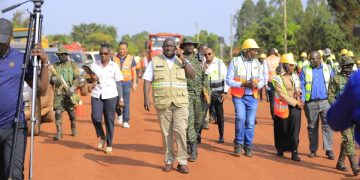
















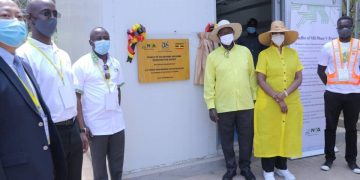



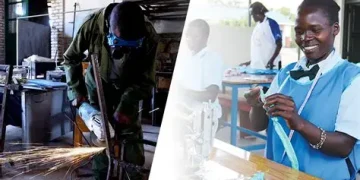






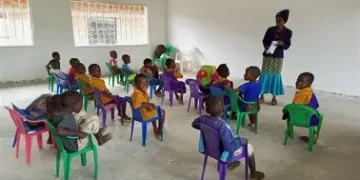


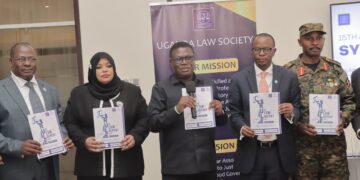





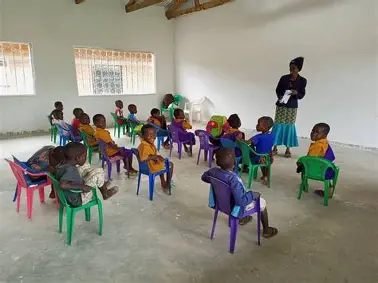






Discussion about this post